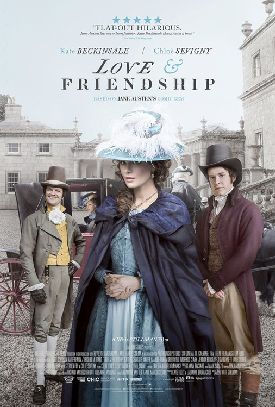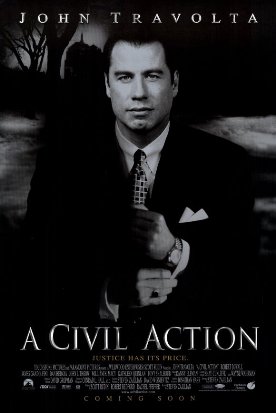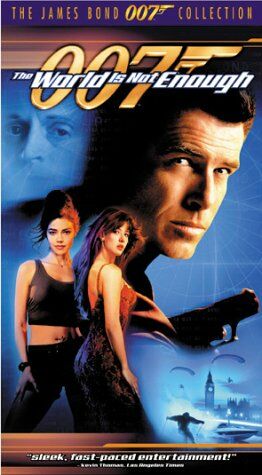Love & Friendship
Whit Stillman’s Love & Friendship (the ampersand is meant to be as charmingly archaic as everything else about the picture) is not your standard picture-book version of Jane Austen. That has both its good and bad sides. The good is that it doesn’t sentimentalize either Miss Austen — as I was taught to call her by academic gentlemen now long dead — or her characters who, apart from Emma in the novel of that name, can come off as being just a little too good, not to say positively priggish, to be true. As in Emma too, the title character of Lady Susan, the short epistolary novel on which the movie is based, is what is inevitably called nowadays an “anti-heroine.” But, unlike Emma, Lady Susan is not redeemed by self-knowledge in the end.
Mr Stillman, an old friend of The American Spectator, must have seen it as a challenge to make a movie so much against the grain of the familiar genre of costume drama as to feature a heroine with whom his female audience will presumably not want to identify themselves. He has had so much trouble finding funding for his quirky, old-fashioned talking pictures since his great trilogy of the 1990s, Metropolitan, Barcelona and The Last Days of Disco that one might have expected him to play it safe and by going for the bigger audience of tradition-minded Jane-ites. Perhaps he thought there were already too many adaptations of the “Masterpiece Theatre” variety for there to be much of a future for him in Jane Austen.
And in a way he does play it safe. The moral monster that, during her apprentice years in the 1790s, Jane created when she created Lady Susan Vernon could never have succeeded at the box office without being turned into the joke she becomes when portrayed by Kate Beckinsale in Love & Friendship. In fact, pretty much everything in this movie is a joke. Don’t get me wrong. The jokes are all excellent ones — a movie virtue never to be made light of — and, like any good sex farce, is enjoyable throughout. Also like farce but unlike most of Mr Stillman’s earlier movies, it has a strongly developed plot line. Audiences are bound to enjoy Lady Susan’s attempts to ingratiate herself with her late husband’s brother (Justin Edwards) and his wife (Emma Greenwell), who loathes her, in an attempt to win the heart and fortune of the wife’s brother (Xavier Samuel) against the wishes of his family.
That she does this more to prove her own powers of seduction than out of genuine feeling — of which she seems all but incapable — is the essence of the film and is taken straight from Jane Austen. But in Mr Stillman’s hands that aspect of her is all there is to her, and she becomes a female version of the picaro, or rogue and trickster, more an early prototype of Thackeray’s Becky Sharp than the Lady Susan of Jane Austen. And Becky, at least, had her moment of conscience and redemption, as Lady Susan never does. Modern audiences are inclined to indulgence towards such women on the grounds that their scheming is forgivable in a world where marriage was the only career open to women without fortune. It would have been surprising if Love & Friendship had not taken advantage of such moral loosening to make its heroine so delightfully wicked.
But she also loses something by it, as does the movie when it turns one of her suitors into a caricature. Sir James Martin (Tom Bennett) is described in the novel as a simpleton and a fool but without any examples of his simplicity or folly apart from repeating himself a lot. In the movie we get so many and such preposterous examples of stupidity, all presumably invented for him by Whit Stillman, that they could have come out of Dumb and Dumber — a level of humor somewhat below that of the rest of the film. Of course you can see why the auteur would not want to risk letting his audience feel any real sympathy for the man who becomes the chief victim of Lady Susan’s predatory ways, but turning him into a caricature risks turning Lady Susan into a caricature as well.
Not that there’s anything wrong with that, you may say. Or Whit Stillman may say. But to my eye, at least, it bespeaks a cynicism that vitiates what should have been an unexpected, even shocking moment of tenderness towards the end when Lady Susan’s daughter (Morfydd Clark) finally finds happiness in spite of her mother’s best efforts to keep her from it. In the general atmosphere of jokiness that surrounds it, how can the ensuing paean to female virtue not look like a joke as well? How else can we forgive the very unvirtuous Lady Susan as she must be forgiven? But then don’t we also still believe, at some level, in the reality of the female virtue that the daughter has and the mother has not?
Shall I tell you what my favorite line in the novel is? It comes in a letter from Lady Susan to her friend, Mrs Johnson — who in the movie is made into an American (Chloë Sevigny) continually threatened by her rich older husband (Stephen Fry) with deportation back to the wasteland of Connecticut. (In the novel he only threatens to move from London to the country.) Lady Susan writes of her married lover, Mr Manwaring (Lochlann O’Mearáin in the movie) and the wild jealousy of Manwaring’s wife (Jenn Murray in the movie): “Silly Woman, to expect constancy from so charming a Man! But she was always silly; intolerably so, in marrying him at all. She, the Heiress of a large Fortune, he without a shilling! One title I know she might have had, besides Baronets. Her folly in forming the connection was so great that tho’ Mr Johnson was her Guardian & I do not in general share his feelings, I never can forgive her.”
Here is a woman so used to looking at love as a high-stakes con game at which she can win only by concealing her true feelings from those whose love she wishes to obtain that she has come to class all lovers as either deceiving or deceived — and where deception is routine, it is unforgivable to be the deceived. She, certainly, would have taken better care of her fortune than has Lucy Manwaring, if she had had one. But as a result, she can only love where she feels contempt — and a particular contempt for those who love her. It is perhaps beyond the scope of any movie fully to convey such subtlety and inwardness. But you can’t help wondering if another cinematic Lady Susan couldn’t have persuaded us that there was a bit more to her than this one does.
Discover more from James Bowman
Subscribe to get the latest posts to your email.








